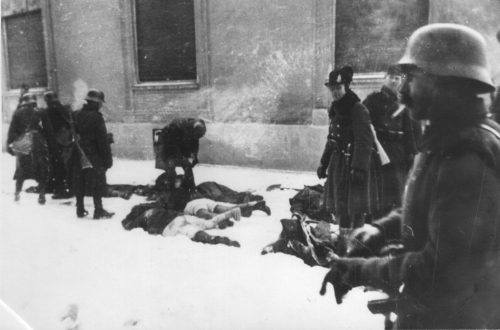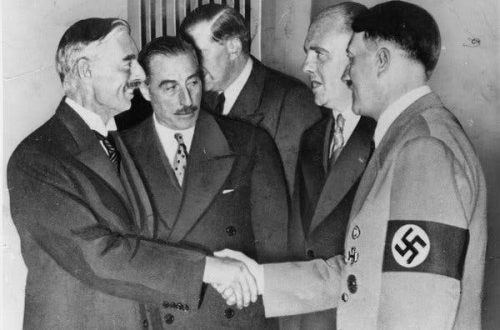Another paragraph from the infamous Morning Star/Socialist Unity paean to the German Democratic Republic:
The first GDR government was composed of individuals with a track record of active opposition to the nazi regime. Many had spent years in concentration camps, prison and exile. They returned determined to build a democratic, anti-fascist Germany.
The reality:
In 1932, the Comintern ordered the Communists to cooperate with the Nazis, so [future GDR leader Walter] Ulbricht and Joseph Goebbels, Nazi ‘Gauleiter’ for Berlin, both urged their respective constituents to support the Berlin transport workers’ strike in November 1932. The strikers were appalled by the scene of Nazis and Communists marching together and the strike was halted after five days.
Source: Frank, Mario: Walter Ulbricht. Eine Deutsche Biographie (Berlin 2001) 88-89
During the German-Soviet alliance 1939-1941, Ulbricht promoted in the Comintern journal ‘Die Welt’ the official line of co-operation with Nazi Germany. Thus, he opined that “the German government declared itself ready for friendly relations with the Soviet Union, whereas the English-French war bloc desires a war against the socialist Soviet Union. The Soviet people and the working people of Germany have an interest in preventing the English war plan.”
In addition, a 1967 report by Radio Free Europe noted that six members and four candidate members of the GDR Central Committee were former Nazis, as well as a large number of other prominent East German officials.
Why do these apologists for late-stage Stalinism make it so easy for the rest of us?
Update: From Divided Memory: The Nazi Past in the Two Germanys by Jeffrey Herf:
Following the 1967 Six Day War in the Middle East, Simon Wiesenthal, known for his efforts to find Nazi war criminals and bring them to justice, was struck by the similarities between the discourse of Nazism and the vocabulary of East German denunciations of Israel. In a 1968 report titled “The Same Language: First for Hitler–Now for Ulbricht,” Wiesenthal reported that among the former members of the Nazi party were the East German government’s press chief Kurt Blecha; the editor-in-chief of the authoritative Deutsche Aussenpolitik (German Foreign Policy) Hans Walter Aust; as well as members of the editorial board of the main party newspaper, Neues Deutschland. He compiled a list of “39 persons who belonged to the Nazi Party and had influential posts during the Nazi era, but who today have at least the same influence in the press, the radio, and the propaganda organs of the GDR.” These former members of the Nazi Party active in the East German press “provide a natural and… a very simple explanation for the terminology used in the GDR newspapers.” That is, the reason why East German propaganda sounded like Nazi propaganda, with the substitution of a few words such as “Israeli” for “Jew” and “progressive forces” for “National Socialism,” was that it was written by former Nazi propagandists! In fact, as I have argued, East Germany’s antagonism toward Israel had its roots in the Soviet and East German Communist traditions. Yet these anti-Western, “anticosmopolitan,” and at times anti-Semitic currents overlapped with an anti-Semitism connected to right-wing nationalist conspiracy theories.
(Hat tip: Graham)


